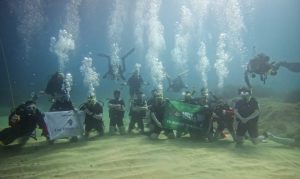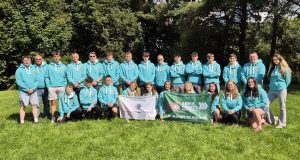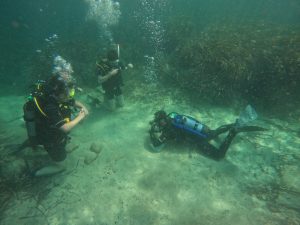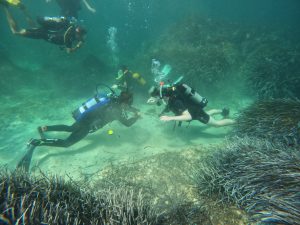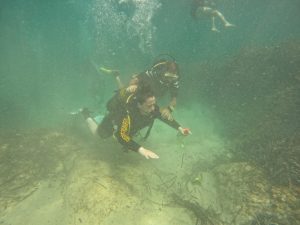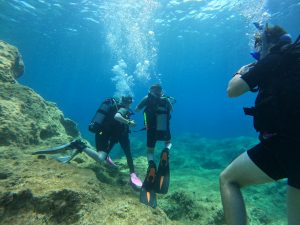Glasgow and Lanarkshire Battalion ACF has just undertaken an adventurous training expedition to Malta to allow cadets and adult volunteers to learn to SCUBA dive.
The very generous grant allowed us to significantly reduce the cost of the expedition to the cadets. This meant that some cadets who might not otherwise have been able to afford the trip were able to have an amazing experience in Malta.
After completing their PADI online learning, where they learnt about some of the theory of diving, we headed to St Paul’s Bay in Malta, where Maltaqua took them through the PADI open water course. This course, once completed, allows them to dive to 18m on a lead dive.
Having previously being a SCUBA instructor, I knew that this would offer a phenomenal experience for the cadets and adults who were undertaking the training. SCUBA diving offers a window into a whole other world that most people never get the chance to see, and I was very excited to share this with the cadets.
On Day 1 of diving, the cadets undertook confined water training in shallow waters of Qawra bay. This saw them learning skills such as mask clearing and kit removal. On Day 2 we went to Ghar Lapsi, where they practiced some more skills, but slightly deeper; down to around 8m underwater. The 3rd day found us at Cirkewwa where the cadets practiced the skills they had learnt over the first two days, but this time they were diving down to 18m. This 3rd day saw them qualify as PADI Open Water Divers. The 4th day diving they were able to go on their first dives as qualified divers! We had two very enjoyable dives around anchor bay, which is next to Popeye village! As well as learning new skills during the diving the cadets were able to enjoy some of the underwater wildlife around the island, highlights being moray eels, and octopus.
SCUBA is an amazing sport that has a very positive impact of physical and mental health by improving blood circulation, concentration, and muscle strength. It helps to reduce stress and lowers blood pressure. Salt water and the sun both have a healing effect on the skin. But more than that is the direct connection to nature, and the feeling of freedom you get from being effectively weightless.
A highlight of the trip was the increase in confidence between Day 1 diving and Day 4. Taking part in the first day, the cadets were eager but their confidence in their own abilities was lacking. In comparison to their final day of diving, their ability to be independent in using their equipment and confidence underwater was evident in their attitude and competence in completing two 18-metre dives, including one in a cave.
One of the favourite parts that the cadets commented on was how the trip had enabled them, both within the cadets and in the diving community, to meet new people and make new friendships that will last a lifetime.
“It’s challenged me to put myself out there, make new friends, face my fears of the ocean, and has made me a more confident person in a lot of different places of my life. It’s made me a more outgoing person and improved my ability to make new friends and shown me I’m able to do thing I’ve never thought I could.
“One of my biggest challenges was when diving I was nervous about being under the water and breathing through a tube and found it hard to believe is possible to do so. I was finding difficult on my ears at some points due to the pressure change but I overcame these issues and managed to finish the course with my scuba diving qualification.”
Cadet B said:
All in all, a very successful inaugural SCUBA expedition, and hopefully the first of many.
After the diving was over, we had a relaxing day on the beach, and then a day in Valetta visiting a couple of museums so the cadets could learn a little about Malta’s contribution to WWII.

